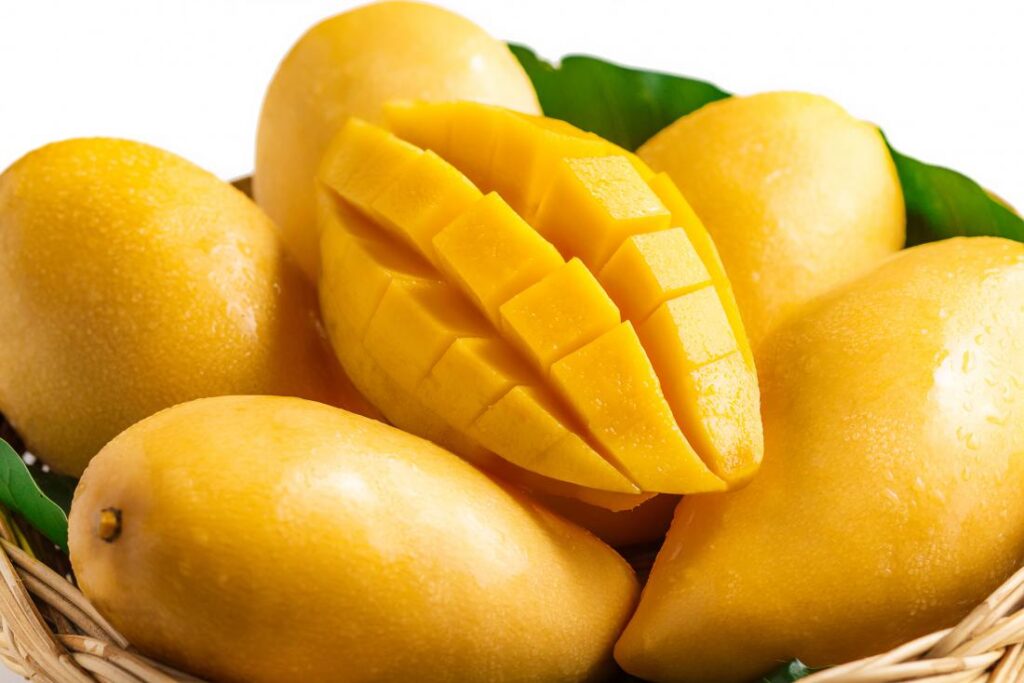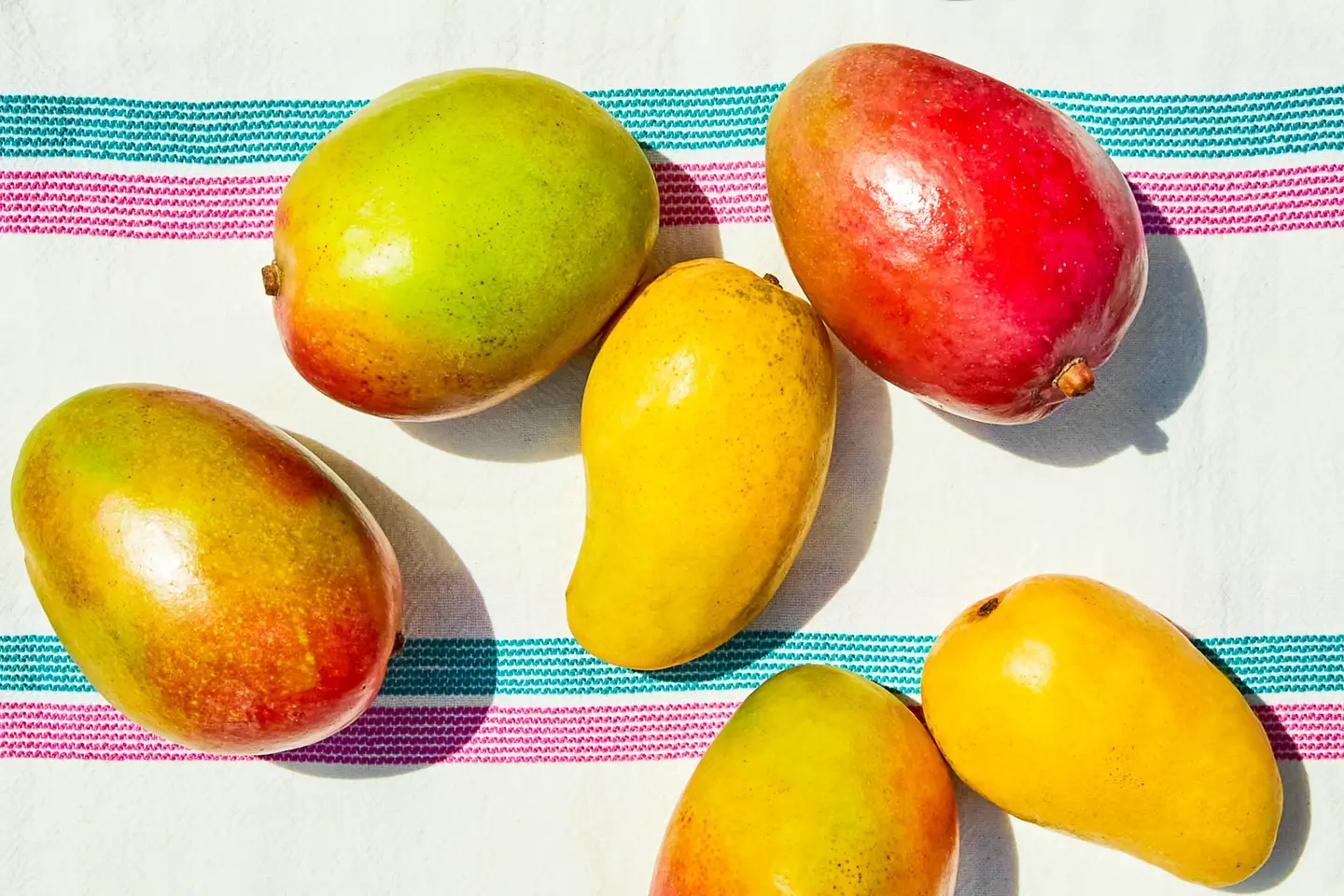The tropical fruit known as the mango is full of vital nutrients that have a number of health advantages in addition to being delicious and known for its sweet flavor and juicy texture. Mango has been used for centuries in traditional medicine to treat a wide range of health conditions, from boosting immunity to assisting digestion. This article will discuss the numerous health advantages of mangoes and the reasons you should include them in your diet.
Table of Contents

increases immunity
Antioxidants, like vitamins A and C, are abundant in mango and are crucial for strengthening the immune system. These anti-oxidants aid in the fight against free radicals that harm the body’s cells and cause oxidative stress. Regular mango consumption can strengthen your body’s defenses against illness and infection.
Encourages Digestive Health
Dietary fiber, which is crucial for maintaining digestive health, is also abundant in mango. Fiber encourages regular bowel movements, prevents constipation, and lowers the risk of developing digestive disorders like irritable bowel syndrome (IBS). Mangos also contain digestive enzymes, which can aid in the breakdown of food and make digestion easier.
Enhances Eye Health
Vitamin A, which is abundant in mango, is vital for maintaining good vision. Age-related macular degeneration (AMD), a condition that can cause vision loss in older adults, is prevented by vitamin A. Regular mango consumption can protect your eyes and enhance your overall vision.
Cholesterol Levels Are Reduced
Pectin is a soluble fiber found in mangoes that may help lower cholesterol levels. In the gut, soluble fiber forms a bond with cholesterol that stops it from entering the bloodstream. You can reduce your risk of developing heart disease and other related conditions by regularly eating mango.

assists in maintaining healthy skin
Vitamin C, which is vital for maintaining healthy skin, is abundant in mango. Vitamin C helps to stimulate collagen production, which is essential for maintaining skin elasticity and preventing wrinkles. Mango also has beta-carotene, a nutrient that can help shield the skin from environmental factors like the sun and pollution.
control blood pressure
Mango contains potassium, a mineral that is essential for regulating blood pressure. Potassium aids in reducing sodium’s harmful effects on the body, which can lower blood pressure. Regular mango consumption can help to keep blood pressure levels in a healthy range and lower the risk of hypertension developing.
Aids in Brain Health
Vitamins B6 and C, which are crucial for preserving brain health, are also abundant in mango. While vitamin C helps to shield the brain from oxidative stress and damage, vitamin B6 helps to enhance brain function and lower the risk of cognitive decline. You can support the health of your brain and enhance your cognitive abilities by regularly eating mango.
Promotes Loss of Weight
Mangos are a fruit with few calories and a lot of dietary fiber. Consuming foods high in fiber can support feelings of fullness and lower calorie intake overall, both of which can help with weight loss. Mango also contains substances known as polyphenols that can aid in preventing the buildup of fat in the body.
minimizes inflammation
Quercetin and kaempferol are two anti-inflammatory substances found in mango. These substances aid in lowering inflammatory levels in the body, which can contribute to a number of illnesses like arthritis and heart disease. Regular mango consumption can help to lower inflammation and enhance your general health.
improves immunity while pregnant
Vitamins A and C, which are crucial for a healthy pregnancy, are abundant in mangoes. Vitamin C helps to boost the immune system and fight infections, while vitamin A is crucial for fetal development. Mango consumption during pregnancy may support a healthy immune system and encourage the fetus’s healthy growth.
In conclusion, mango is a versatile and tasty fruit that has a number of health advantages. It can promote healthy skin and eyes, support healthy digestion, control blood pressure, help with weight loss, reduce inflammation, and improve immunity during pregnancy. Including mango in your diet is a great way to take advantage of all of its health advantages while also satiating your palate.
Mangoes are delectable, adaptable, and simple to include in your diet.
However, you might find it difficult to cut due to its tough skin and large pit.
Here is a useful technique for cutting a mango:
Cut long, vertical slices 1/4 inch (6 mm) away from the center of the mango while the skin is still on to separate the flesh from the pit.
Without cutting the skin, arrange the flesh on each of these slices in a grid-like pattern.
Scoop the skin-tissue-cut flesh out.
Here are a few methods for enjoying mangoes:
To smoothies, add it.
Add it to salsa after being diced.
Add it to a salad for summer.
It can be sliced and served with other tropical fruits.
Add it to a quinoa salad after being diced.
Oatmeal or Greek yogurt with mango.
Add grilled mango to burgers or seafood dishes.
Remember that compared to many other fruits, mango is sweeter and contains more sugar. The key is moderation; it’s best to keep your daily mango intake to no more than 2 cups (330 grams).

